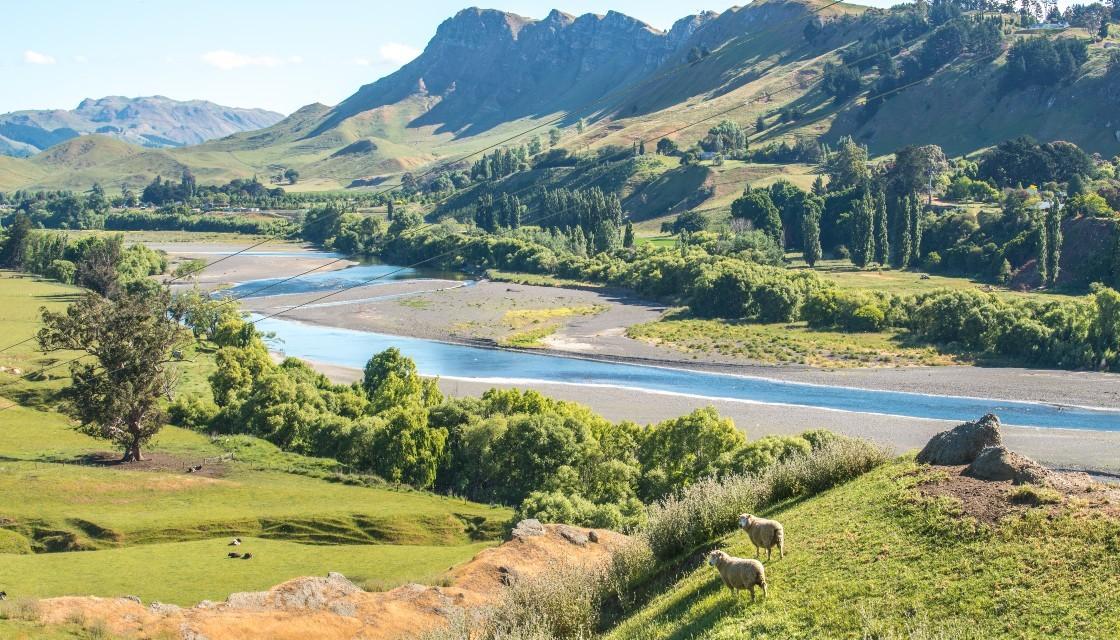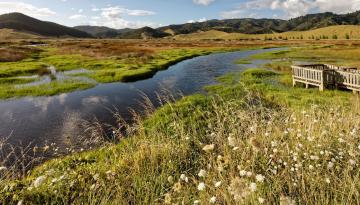
Government invests $700 million to protect fresh waterways, announces raft of new regulations
The Government's new plan to protect New Zealand's waterways prohibits stock from entering rivers or streams more than a metre wide.
It also places a cap on how much synthetic fertiliser can be used on farms, requiring dairy farmers to report annually to councils on the quantity of nitrogen applied per hectare as synthetic fertiliser.
However, despite calls from scientists during the proposal stage, no bottom line for dissolved inorganic nitrogen (DIN) was implemented in the plan.
The plan was announced on Thursday by Minister for the Environment David Parker and Minister of Agriculture Damien O'Connor.
Green Party co-leader Marama Davidson said while some of the protections could be stronger, the reforms were a "significant improvement on the status quo".
Related News

Freshwater plan: Govt 'heeded' rural sector's feedback, but ''sharp edges' remain

Govt reveals plan to clean up NZ's dirty waterways
The Government earmarked $700 million to help the primary sector and other groups implement the new regulations.
"All farmers in New Zealand appreciate the value of high quality water and many have done a huge amount of work to improve their practices over the last 20 years or more. Many are leading the way in restoring our waterways," said O'Connor.
"Work undertaken to date estimates 80 percent of dairy farmers won't be affected by the cap on synthetic nitrogen fertiliser."
The cap per hectare would initially be set at 190kgs/hectare/year, with a review by 2023. It will not apply to vegetable growers.
According to Government figures, fertiliser use increased seven fold between 1990 and 2018.
As part of the new regulations, fertiliser companies will have to report on their sales "to ensure the overall level of use is heading in the right direction".
In order to mitigate freshwater contamination, dairy and beef cattle, deer and pigs farmed in low-slope areas (less-than a 10 degree slope) are not allowed to enter any wetland, lake, river or stream more than a metre wide, bank-to-bank. Stock must also be restricted from grazing within 3m from the banks of these waterways.
The new rules, which exclude sheep, will come into effect in 2023 or 2025, depending on the type of stock and location of properties.
Where fences are required on farms they must be a minimum of 3m from a waterway, though permanent fences already in place will not have to move.
New controls on intensive winter grazing of forage crops have also been introduced in a bid to stop soil erosion and containment runoff.
Restrictions on major agricultural intensification also mean that resource consent will be needed for any land-use change to dairy farming of more than 10 hectares; irrigation expansion on dairy farms of more than 10 hectares; land use changes of more than 10 hectares from woody vegetation or plantation forestry to pastoral farming; and expansion of intensive grazing or dairy support activities above historical levels.
Resource consent will also be required for all feedlots and stock holding areas that do not meet minimum standards, which include ensuring the base area of the feedlot is appropriately sealed and effluent is managed according to council regulation.
Rules put in place to preserve the connectivity of the habitats of fish species mean that weirs and culverts can only be constructed if they meet certain design specifications.
Any activities leading to the loss of streams and natural wetlands, such as clearing vegetation, earthworks and changes to water levels in wetlands, have also been prohibited, though provisions do exist allowing for some exceptions.
"Restoration and maintenance activities can still go ahead without a consent as long as the effects are no more than minor, but will otherwise need a consent to ensure adverse effects are managed," the regulations state.
Limits of E.coli (an indicator of faecal pollution) were also introduced in a bid to make swimming and food gathering safer.
A DIN national bottom line was delayed for 12 months, in order to allow enough time for a thorough review of its economic and environmental impacts, the ministers said.
Parker said the new regulations will benefit Kiwis both on a local level and economically.
"New Zealanders want to go down to their local swimming spot in summer and be able to put their head under without getting crook," he said.
"Cleaning our waterways will secure the future of our meat, dairy and other primary exports and ensure they continue to earn higher prices overseas. It makes both economic and environmental sense."